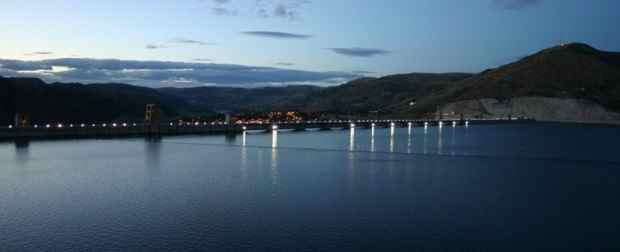forum
library
tutorial
contact

Group Critical of Columbia River Water Quality
by Eric FloripThe Columbian, September 5, 2011
|
the film forum library tutorial contact |

|
Group Critical of Columbia River Water Qualityby Eric FloripThe Columbian, September 5, 2011 |
Data from 'citizen scientists' will be used in massive state report
 When the citizen group Columbia Riverkeeper submitted water quality data to state authorities last week, it also fired off an announcement detailing "extensive violations" of water quality standards on the Columbia.
When the citizen group Columbia Riverkeeper submitted water quality data to state authorities last week, it also fired off an announcement detailing "extensive violations" of water quality standards on the Columbia.
That might be a bit premature -- the data are only a small part of a massive index of troubled waterways the state Department of Ecology is putting together for 2012. The agency's three-month "call for data" inviting outside entities to contribute just ended Aug. 31. Now comes the lengthy process of analyzing it.
"We've got a lot of information that we collect," said Susan Braley, a water quality supervisor with the ecology department. She noted dozens more studies the state agency does in-house.
Problems on the Columbia River wouldn't be a new development. Higher water temperatures have long been an issue on the heavily dammed river. Oxygen levels and dissolved gas content have also strayed from state and federal standards, along with various pollutants around the watershed.
The ecology department's 303(d) report from 2008 -- named for a section of the federal Clear Water Act -- found problems big and small along the Columbia from the Washington Coast to Wenatchee. Some of those same issues, particularly high water temperatures, came up again in sampling by Columbia Riverkeeper volunteers earlier this year, said Lorri Epstein, the group's water quality director.
With problems well known, both Washington and Oregon authorities need to take stronger action to fix them, Epstein said.
"It is apparent that we're not doing enough," Epstein said.
The Environmental Protection Agency started a plan to address high temperatures on the river, which are harmful to fish, several years ago, but that effort remains unfinished, Braley said.
Wealth of information
Other pollutants identified by Columbia Riverkeeper this year include fecal bacteria and E. coli, Epstein said. It's more difficult to pinpoint sources of those, however, as animals and other factors can come and go year to year, Braley said.
The ecology department is working on its 2012 list of impaired waterways even before the 2010 version is finished. The process is carried out differently than it used to be, with marine and fresh-water bodies now analyzed in separate reports, alternating every two years. The 2008 report includes everything, but state officials asked to split them to complete the process more quickly.
"Sometimes we're behind the 8-ball, because we have a lot of data and a lot of water," Braley said. "We just have so much water."
Columbia Riverkeeper has chipped in data for the past five years, mostly with volunteer "citizen scientists." The group also partners with Wenatchee Valley College, Mt. Hood Community College and Lower Columbia College to store and maintain equipment used for gathering data, Epstein said. Volunteers collected data at 64 sites along the river this year, she said.
Other entities that submit data include county governments, cities, nonprofit groups, tribes and private industrial entities, Braley said.
The ecology department's final 2010 impaired water report (on marine waterways) will be submitted to the EPA for final approval later this year, Braley said. The 2012 version (fresh water) will be released as a draft next year, then submitted for approval in late 2012 or early 2013.
learn more on topics covered in the film
see the video
read the script
learn the songs
discussion forum
